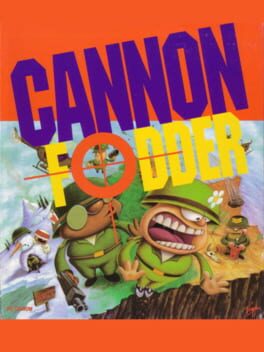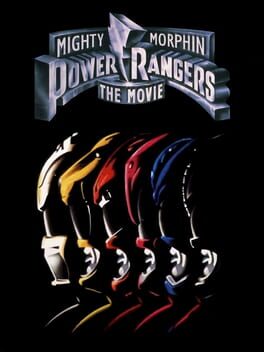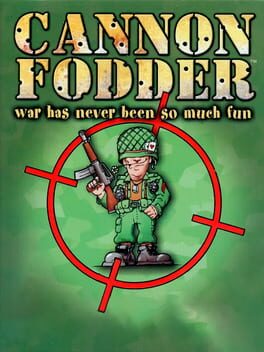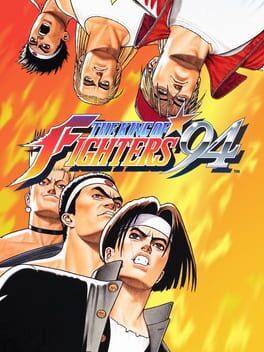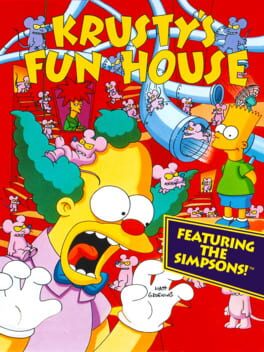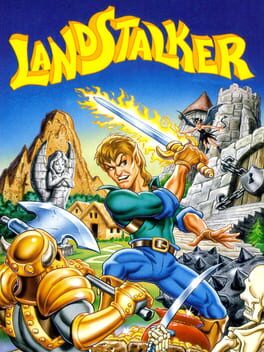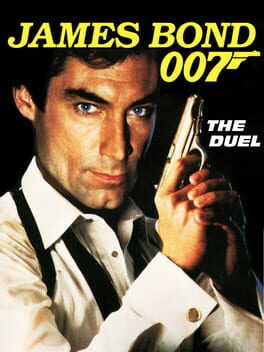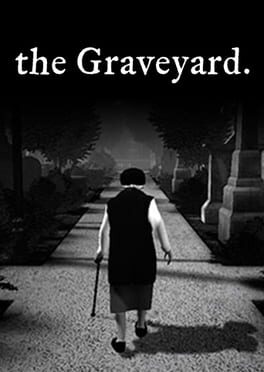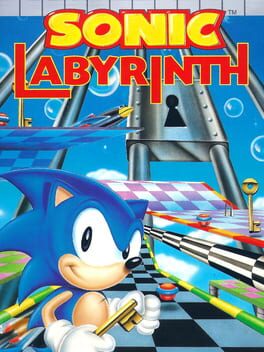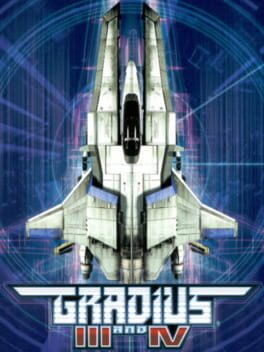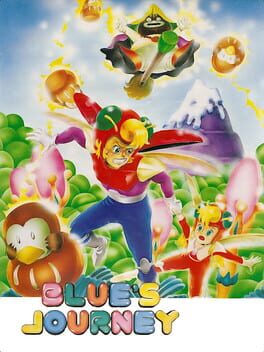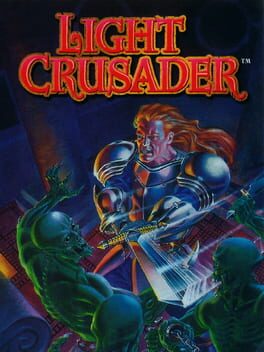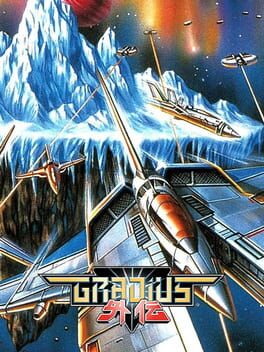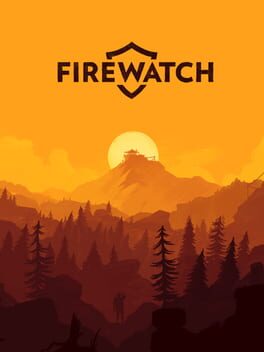Blowing_Wind
1993
It's a definitive thematic improvement over Codemaster's reinterpretation (gone are the flashy effects and programming showoff) by means of a more serious interior and the recruitment screen that shows all the people you've lost to a war you don't even know the details of (which makes the loss of people feel more like something out of control than some noble deed).
And you WILL lose a lot of troops, the level design encourages you to split troops, which wasn't possible in the GBC version, and sacrifice them into enemy fire a lot of the time and sometimes the battlefied is so unmerciful your squad gets dropped next to unavoidable projectiles.
However it still feels kind of tedious and overlong like the GBC version, at 72 levels that get kind of repetitive until the last third start having more novel ideas to keep things fresh. I'm pretty sure boring the player wasn't to portray its anti war message (since its provocative tagline is "War has never been so much fun") but instead make you realize how many people die in the battlefield while someone above them carries out plans away from danger, so I would have prefered a much shorter game to carry its point across.
And you WILL lose a lot of troops, the level design encourages you to split troops, which wasn't possible in the GBC version, and sacrifice them into enemy fire a lot of the time and sometimes the battlefied is so unmerciful your squad gets dropped next to unavoidable projectiles.
However it still feels kind of tedious and overlong like the GBC version, at 72 levels that get kind of repetitive until the last third start having more novel ideas to keep things fresh. I'm pretty sure boring the player wasn't to portray its anti war message (since its provocative tagline is "War has never been so much fun") but instead make you realize how many people die in the battlefield while someone above them carries out plans away from danger, so I would have prefered a much shorter game to carry its point across.
Dumb and repetitive fitting for a formulaic show I watched as a kid (I only remember the movie it's based on in the passing because I remember liking the vistas on the other planet). Probably the most interesting aspect is that some characters change appearance (and abilities and such) consistent to what the story is telling, which I haven't seen in a beat em up from this era
2000
Painfully ironic that a game known for its anti war message in home computers (version which I haven't played but have seen some parts of) was ported to a Nintendo console, so with kids for a main target, and with a company known in the 90s for trying to be the least controversial possible... being misinterpreted by Codemasters in every way possible.
It plays straight the seriousness of the missions you are sending the troops to, and they don't even bother putting the part in the opening song with the satire in the lyrics "go up to your brother, kill them with your gun, leave him dying in his uniform, drying in the sun", which leaves the rest of the game feeling like a tasteless banalization and glorification of war with funny screams as people die instead of a satire where you sadly keep sending individually named soldiers to die and make you realize what you are doing. The infamous "recruitment" screen which starts piling up graves as your soldiers die in the field, leaving a strong visual impression, is replaced by having a technically impressive menu system (which still lists the soldiers whio died in a separate screen), which next to the digitized speech samples and the FMV intro running in the Game Boy tells me the porters were more interested in making it look cool than actually conveying an emotion as simple as it was in the original PC game.
It plays straight the seriousness of the missions you are sending the troops to, and they don't even bother putting the part in the opening song with the satire in the lyrics "go up to your brother, kill them with your gun, leave him dying in his uniform, drying in the sun", which leaves the rest of the game feeling like a tasteless banalization and glorification of war with funny screams as people die instead of a satire where you sadly keep sending individually named soldiers to die and make you realize what you are doing. The infamous "recruitment" screen which starts piling up graves as your soldiers die in the field, leaving a strong visual impression, is replaced by having a technically impressive menu system (which still lists the soldiers whio died in a separate screen), which next to the digitized speech samples and the FMV intro running in the Game Boy tells me the porters were more interested in making it look cool than actually conveying an emotion as simple as it was in the original PC game.
The 3 on 3 battles aren't just a gimmick to differentiate itself from other fighting games in gameplay but they also provide some charm with the rest of your team reacting to your fights and the cliché story motivations at the end of every fighting game are at least a little more bearable when it's multiple characters building on each other. The game still feels very fan servicey though (the only thing from this I'm thankful of is SNK didn't make Athena a loli again lol)
1992
Ah yes! A puzzle platformer where you play as the depressed jewish clown who can't make anyone but kids laugh! I wonder how the creators of this game (released during Season 3 I think) would react if they saw how they expanded on Krusty's character over the years 🤣
It's an average puzzler though I like the little touches like the publicity plastered over the walls in the levels because Krusty's so greedy he makes revenue out of removing an infestation, at least even if this was a reskinned game originally not intended to be a Simpsons license at least they managed to put Simpsons style humor in it.
It's an average puzzler though I like the little touches like the publicity plastered over the walls in the levels because Krusty's so greedy he makes revenue out of removing an infestation, at least even if this was a reskinned game originally not intended to be a Simpsons license at least they managed to put Simpsons style humor in it.
Game 700!
Kind of weird that a game with so much emphasis in platforming has no shadow when a similarly isometric game like Light Crusader on the same system didn't have that much emphasis in jumping around yet it did have shadows, it makes difficult to judge perspectives gameplay-wise and graphically wise it can make things look odd, like an amateurish landscape painting with no shading.
While it can become a little reiterative compared to Light Crusader because of its large lenght, the game features a charming script and more thought out locales, so I think it balances out with the short but sweet adventure of Treasure's posterior game
Thanks Gsar for the recommendation!
Kind of weird that a game with so much emphasis in platforming has no shadow when a similarly isometric game like Light Crusader on the same system didn't have that much emphasis in jumping around yet it did have shadows, it makes difficult to judge perspectives gameplay-wise and graphically wise it can make things look odd, like an amateurish landscape painting with no shading.
While it can become a little reiterative compared to Light Crusader because of its large lenght, the game features a charming script and more thought out locales, so I think it balances out with the short but sweet adventure of Treasure's posterior game
Thanks Gsar for the recommendation!
I had a portable pirate Sega Genesis as a kid which might not have had enough cartridges to use in it, and without built-in games, my selection was of 8 titles. My brother also had a portable pirate Sega Genesis, more closely looking like a Nomad, he had tons of games for it but the sound quality was pretty off.
This right here was my favourite to play from the 8 titles I had for the little system, and the music was the first thing that came to mind while replaying this as an adult. The other thing was that it was pretty short, but refreshingly so, at only 4 gigantic levels that you had to fully explore to complete the missions, involving a memorable central set piece to each one of them (especially coming from the SMS version, the spaceship you have to climb through the whole level feels properly huge). Of course it's nothing groundbreaking, and it draws a lot of inspiration from one of my least favourites Bond movies (Moonraker) making the settings have a lot of sci fi elements to them, but it's solid as far as retro games go.
This right here was my favourite to play from the 8 titles I had for the little system, and the music was the first thing that came to mind while replaying this as an adult. The other thing was that it was pretty short, but refreshingly so, at only 4 gigantic levels that you had to fully explore to complete the missions, involving a memorable central set piece to each one of them (especially coming from the SMS version, the spaceship you have to climb through the whole level feels properly huge). Of course it's nothing groundbreaking, and it draws a lot of inspiration from one of my least favourites Bond movies (Moonraker) making the settings have a lot of sci fi elements to them, but it's solid as far as retro games go.
It might be nostalgia speaking but I think I prefer the Genesis version as even if the SMS one feels more meaty and longer, it also feels like another run of the mill platformer with none of the more unique aspects of its 16 bit brother (like manipulating objects that came into play later in levels making the interaction with the environment more organic).
2008
This review contains spoilers
You sit down in a bench and listen to the story of the life of an old lady contemplating the premature deaths of the people she knew in a dutch song, but the game does nothing more with the idea. Heck, the last title I played was a freaking pet simulator (Growing my Grandpa) and it portrayed themes of loneliness better than this game portrays the loneliness this poor woman must have felt before she passed away to meet those people (or the loneliness she will steel feel if you allow her to leave the graveyard alive)... Anyway it's a kind of nihilism I'm not too kind of if it doesn't have more to say
1995
Beaten on the GG2SMS patch (yes, with all that junk on screen)
My family's moved house two days ago on march 15th 2024, and amidst the memories I had in that other home, fights between my family and all that, I remember waking up early as a kid to go boot up Sonic Gems Collection on the PS2. I even remember trying to beat Sonic Triple Trouble in that collection, the game in which the character I have as a pfp originated from (this pic goes hard, feel free to screenshot) before going to an english exam in the morning and not being able to beat Tidal Tempest Act 2.
And yeah, among all those Game Gear titles there were two that didn't caught my attention so much as a kid, Tails' Skypatrol, which as an adult feels like an unrelated game with weird characters with the character slapped on it; and this one, which sadly feels like a special stage stretched to a whole game, bizarre just for the sake of being bizarre (oh, and with some epilepsy inducing special effects), but damn if I didn't enjoy most other things in that collection as a kid.
With the house no longer of our property, even with the posibilty of being destroyed, at least I hope this review and some videos I recorded in there keep the memories alive.
My family's moved house two days ago on march 15th 2024, and amidst the memories I had in that other home, fights between my family and all that, I remember waking up early as a kid to go boot up Sonic Gems Collection on the PS2. I even remember trying to beat Sonic Triple Trouble in that collection, the game in which the character I have as a pfp originated from (this pic goes hard, feel free to screenshot) before going to an english exam in the morning and not being able to beat Tidal Tempest Act 2.
And yeah, among all those Game Gear titles there were two that didn't caught my attention so much as a kid, Tails' Skypatrol, which as an adult feels like an unrelated game with weird characters with the character slapped on it; and this one, which sadly feels like a special stage stretched to a whole game, bizarre just for the sake of being bizarre (oh, and with some epilepsy inducing special effects), but damn if I didn't enjoy most other things in that collection as a kid.
With the house no longer of our property, even with the posibilty of being destroyed, at least I hope this review and some videos I recorded in there keep the memories alive.
2000
Gradius III: I had played the SNES version before and didn't remember it being this hard. I don't mind if the game is this punishingly difficult, but the last stage in this title has a section with lasers in which I had to look a guide online about how to beat (the infamous cube rush was hard and randomly generated but it was evident you had to try and build a wall around you). Turns out on the section with the lasers you have to try not to slowdown the game by firing everything you got because the slower scrolling desyncs the pattern of the lasers and you can end up not having a way to escape them. If you are too good at the game, you fuck up the level design. There's unfairly designed hard and then there's hard by inept programming, and even though my account here doesn't take into account gameplay that much, this is a technical issue akin to delivering a painting with the canvas having a hole in it not allowing to see something important (with no postmodern intention behind it)
Gradius IV: The game makes use of real time 3D to portray some of the enemies, which allows for some smoother movement for them compared to previous titles... And that's it. Gradius Gaiden released prior to this had a really impressive and distinct look to it while only using 2D and this just recycles ideas from the previous games in the series with no interesting twists to them (how many times have I seen that Salamander spinning tentacle core this month...), in a franchise which I already see as having problems distancing itself from its formula and without making use of the 3D for some cinematographic looking backgrounds, like what little I have seen for Gradius V.
Well, at least I have these two completed, so when I eventually play Treasure's entry I won't have to go through these underwhelming experiences just before to see if it doesn't become as derivative as Gradius III & IV.
Gradius IV: The game makes use of real time 3D to portray some of the enemies, which allows for some smoother movement for them compared to previous titles... And that's it. Gradius Gaiden released prior to this had a really impressive and distinct look to it while only using 2D and this just recycles ideas from the previous games in the series with no interesting twists to them (how many times have I seen that Salamander spinning tentacle core this month...), in a franchise which I already see as having problems distancing itself from its formula and without making use of the 3D for some cinematographic looking backgrounds, like what little I have seen for Gradius V.
Well, at least I have these two completed, so when I eventually play Treasure's entry I won't have to go through these underwhelming experiences just before to see if it doesn't become as derivative as Gradius III & IV.
1991
https://youtu.be/-y4hoEE3Jjg?si=l7sAEY3rj5ZhXArU
How about I stop pumping quarters so I don't save your imaginary world from pollution and instead don't encourage this stupid game to leave a carbon footprint in real life by incentivizing the arcade owners to leave this thing turned on all day and night long? Oh, and I am the bad guy? Get lost
How about I stop pumping quarters so I don't save your imaginary world from pollution and instead don't encourage this stupid game to leave a carbon footprint in real life by incentivizing the arcade owners to leave this thing turned on all day and night long? Oh, and I am the bad guy? Get lost
1995
Short and to the point Treasure game with all their funny quirks and sense of humor, at one point you encounter a lady which you think will be the typical character that changes the background music with a sweet melody but actually starts banging her hands all over the keys making a cacophony. The only NPC you can sell stuff to is a straight up cat, not an antropomorphic creature that speaks, just a cat that only meows yet seems to manage money. There's a point later in the game where some magicians are trapped in different dimensions and you get to fight world war 2 soldiers and a tank or even in feudal Japan and a futuristic setting with your european medieval armor, sword and magic.
I would have liked the villain to be more complex but the game is charming enough with its interesting atmosphere (which also extends to the experimental, ambiental soundtrack at points) without overcomplicating things (I'm looking at you, unnecesary time travel in Ultima I) that it reaches decent status
I would have liked the villain to be more complex but the game is charming enough with its interesting atmosphere (which also extends to the experimental, ambiental soundtrack at points) without overcomplicating things (I'm looking at you, unnecesary time travel in Ultima I) that it reaches decent status
1997
Reuses a lot of older elements from the series (there's even a boss fight near the end I swear I remember from another Konami game called Axelay) but reinvents them into some really exciting and ingenious set pieces. I was already rolling my eyes at yet another planet of mountains after the previous Gradius and then a black hole just starts sucking everything through the whole level adding to the tension
2016
This review contains spoilers
Beyond the evasion that Henry is doing by going to Two Forks because of his wife's alzheimer, it's the parallel to the story between the father and the child what builds the layers for me. The kid built his own fortress in the mountains to not fall under his father's control and to have a place where he could plan out his dreams, a little "fantasy world" as Henry puts it.
The father took it to an extreme, and his cowardice and not handling his responsability made him evade the rest of the world in a demented state of mind, hiding away in the place he wanted to share to his son without being able to connect on the same wavelenght, just like Henry wouldn't be able to reach out to Julia anymore. Apart from the practical use of the information to frame the two protagonists, I wonder if in his little refuge he also was trying to figure out how Henry and Delilah were on a similar wavelenght not just from the walkie talkie frequency, but also in human connection, the kind that he couldn't have with his son.
The father took it to an extreme, and his cowardice and not handling his responsability made him evade the rest of the world in a demented state of mind, hiding away in the place he wanted to share to his son without being able to connect on the same wavelenght, just like Henry wouldn't be able to reach out to Julia anymore. Apart from the practical use of the information to frame the two protagonists, I wonder if in his little refuge he also was trying to figure out how Henry and Delilah were on a similar wavelenght not just from the walkie talkie frequency, but also in human connection, the kind that he couldn't have with his son.
